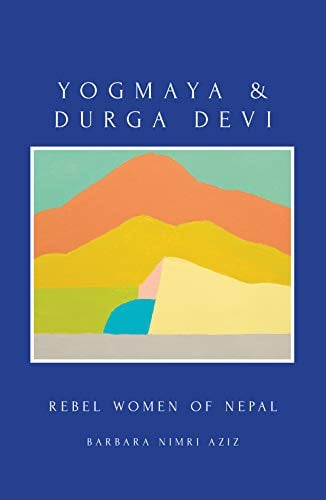What Was That Biden Said About “Ending the War”?

All Global Research articles can be read in 51 languages by activating the Translate Website button below the author’s name.
To receive Global Research’s Daily Newsletter (selected articles), click here.
Follow us on Instagram and Twitter and subscribe to our Telegram Channel. Feel free to repost and share widely Global Research articles.
***
Commentators are busy speculating how the American president’s promise – endorsed by the country as enthusiastically as Zelensky himself– of M1 Abram tanks to Ukraine will affect the war that grinds on in Ukraine. Many assume that gifts of fighter jets will follow shortly.
What disturbs me is the semantics of Biden’s announcement of the gift, rationalized and neatly summed up by, “We all want an end to this war.”
I wonder if Joe Biden is aware that his statement comes in the very week that marks 50 years since the inglorious end of the U.S. war in Vietnam, (noted more widely in the foreign press than in the U.S.) How many times and for how many years did Americans and perhaps their Vietnamese quislings hear that kind of heroic talk about victory there? Similar assurances from military leaders and politicians were offered in subsequent wars. Remember Afghanistan where American military forces likewise abandoned the noble cause, although that took two decades to prove unworkable, and humiliating as well.
How can one answer Biden’s noble declaration—”We want to end this war”? So clean, so unambiguous, he talks to us as if we are children; “Yes, my little ones; daddy will take care of everything. I’ll finish off that coyote in no time and you’ll all be safe.”
And who are Biden’s “We”? Do they include you and me? All Europe? Pentagon strategists? Profiteering weapons suppliers and busy intelligence agencies?
Does his “We” include the crowds of pundits—we have an abundance of conflict specialists newly available after their Iraq and Afghanistan tenures? Is Biden speaking for America’s faithful war-partner Britain and its reluctant ally Germany? If any skeptical Europeans remain hesitant about increased military buildups, it could be directed at them. Who doesn’t want to end this war? I expect Russia too would agree to this.
Biden’s language is cunningly comforting, reassuring. It could even be read as an appeal for peace; couldn’t it? “….end this war.”
For me, and likely some others as well, that invocation is actually discomforting. It’s too close to the pleading slogans of anti-war protestors of past generations. Some may recall that cry back in early 2003 when the wholesale bombing of Iraq was imminent. “Hm. Really? A bit late”, sighed my Iraqi companions that bleek day when we sat on a grassy Mosel knoll and heard news from across the world that millions of dissident marchers spoke against an invasion of their land. (Didn’t those anti war liberals know that a 13-year-long embargo war had already battered and impoverished the nation?) Once the bombing of Iraq was well under way and the drama of the American land assault filled the news reports, occasionally one might hear a feeble “end the war’ on the margins of American life.
No one is guessing how long the NATO/Ukraine-Russia battles will last. Speculation is that this war can only intensify. What few voices who suggest that some negotiations should begin are being stilled. No one is objecting to the billions of dollars Washington has already committed to this madness. You saw what happened three months ago when a feeble suggestion by the Democratic Progressive Caucus to initiate negotiations between Ukraine and Russia was presented to the White House. They slunk away in embarrassment.
Meanwhile Mr. Biden assures a lot of people that “We all want an end to this war.” They can count on America.
*
Note to readers: Please click the share buttons above. Follow us on Instagram and Twitter and subscribe to our Telegram Channel. Feel free to repost and share widely Global Research articles.
Barbara Nimri Aziz whose anthropological research has focused on the peoples of the Himalayas is the author of the newly published “Yogmaya and Durga Devi: Rebel Women of Nepal”, available on Amazon.
She is a regular contributor to Global Research.
All images in this article are from the author
“Yogmaya and Durga Devi: Rebel Women of Nepal”
By Barbara Nimri Aziz
A century ago Yogmaya and Durga Devi, two women champions of justice, emerged from a remote corner of rural Nepal to offer solutions to their nation’s social and political ills. Then they were forgotten.
Years after their demise, in 1980 veteran anthropologist Barbara Nimri Aziz first uncovered their suppressed histories in her comprehensive and accessible biographies. Revelations from her decade of research led to the resurrection of these women and their entry into contemporary Nepali consciousness.
This book captures the daring political campaigns of these rebel women; at the same time it asks us to acknowledge their impact on contemporary feminist thinking. Like many revolutionaries who were vilified in their lifetimes, we learn about the true nature of these leaders’ intelligence, sacrifices, and vision during an era of social and economic oppression in this part of Asia.
After Nepal moved from absolute monarchy to a fledgling democracy and history re-evaluated these pioneers, Dr. Aziz explores their legacies in this book.
Psychologically provocative and astonishingly moving, “Yogmaya and Durga Devi” is a seminal contribution to women’s history.



